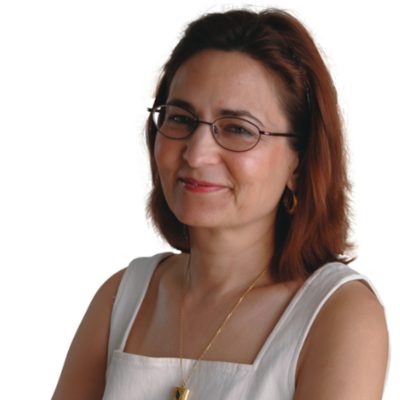Susan Akram, director of the International Human Rights Clinic at the Boston University School of Law, said she saw generational trauma firsthand.
Her father’s family fled from the 1947 India-Pakistan partition in East Punjab, and Akram, born and raised in Pakistan, said she was confronted with the realities of generational trauma.

When India gained independence from British rule in 1947, it was partitioned into two independent states, Hindu-majority India and Muslim-majority Pakistan. This caused the religious displacement of 15 million people, according to the New Yorker.
About a half million to two million people were killed on both sides during the partition violence, Akram wrote in an email. Akram said she recalls stories her mother told her of people knocking on her door, looking for their loved ones.
“My mother was always so heartbroken,” Akram said.
Akram eventually went on to pursue higher education in the United States, where she double majored in political science and Asian studies at University of Michigan.
She then graduated from Georgetown University with a Juris Doctor degree. After graduation, she began her career in a private law firm in California. But Akram said the work “went against [her] own sense of who [she] was.”
“We were representing these big corporations that, in many ways to my mind, were not fair in their dealings with the small businesses and consumers,” Akram said.
So Akram went to a recruitment program in Oakland, where the Lawyers’ Committee for Civil Rights was recruiting lawyers to work with refugees from Central America. As Akram began to work on those cases, she said she “fell in love” with the work because it resonated with her own background.
“I was so lucky to have this opportunity to move into public interest, and I never looked back,” Akram said.
When she worked in Public Counsel, Akram said she was one of the lawyers that the legal team consulted on some aspects of the Los Angeles Eight case, where seven Palestinian people and one Kenyan woman alleged to have raised money for Popular Front for the Liberation of Palestine, and were considered terrorists by the FBI, according to a report by Middle East Research and Information Project.
Because Akram was closely affiliated with the case, she said she grew to learn a lot about the conflict in Palestine.
In 1988, Akram visited Palestine for the first time on a delegation. This was during the First Intifada, an uprising by Palestinians against Israeli occupation in the West Bank and in the Gaza Strip, according to Britannica.
“I saw, at that time, firsthand what was happening in Palestine — the brutality of the occupation,” Akram said.
At the Gaza Strip, Akram said she visited a hospital where Palestinians were shot deliberately in the legs and in the head.
The visit “opened [Akram’s] eyes” and helped her understand “the kind of representation that needed to be done for Palestinians,” Akram said.
Akram then started the Political Asylum/Immigration Representation Project, or PAIR project, which provides free legal representation of refugees and asylum seekers.
Since then, Akram has been back in Palestine multiple times, including one year of teaching at Al-Quds University in East Jerusalem in 1999 to 2000, with the Fulbright Senior Scholar Fellowship.
During her Fulbright, she said she wanted to study “the international legal framework that applies to Palestinian refugees.”
Akram said she met with refugee communities through BADIL, a nonprofit organization that advocates for Palestinian refugee’s rights.
“A lot of academic research is disconnected from victims’ voices and the voices of people who are actually affected,” Akram said.
Since the attack by Hamas on Israel on Oct. 7, Akram said she has been “in shock” with the ongoing situation.
“The fact that … Israel could place such restrictions on humanitarian aid to cause starvation in the 21st century,” Akram said. “This is unbelievable.”
The International Court of Justice’s ruling in January, which stated that Israel must take all measures to prevent genocidal acts, Akram said she saw as a “watershed” after 75 years of “dispossession, oppression, killings, torture, mistreatment” of Palestinians.
In the public-facing aspect of her work, Akram said she has faced years of criticism, which has grown recently.
“I’ve had email, LinkedIn, you know, lots of threatening messages and pushback,” Akram said.
She said she is also listed on “Canary Mission,” which she said is considered a “blacklist” of academics and activists working on Palestine.
Akram started teaching at BU in 1993, where she now supervises students representing international non-governmental organizations at the International Human Rights Clinic, IHRC.
A J.D. student in IHRC, Lucas Coury-Ortiz, said he joined the IHRC program to get hands-on legal work within the international human rights field, which he said is “a notoriously very difficult field to break into.”
“Professor Akram’s curriculum and the way the clinic’s structured is incredibly methodical,” Coury-Ortiz said.
Nour Ouardani, one of the five Master of Law students in IHRC accepted for the first time this year, said Akram’s work has been inspirational to her.
During her work regarding statelessness in Qatar, Ouardani said through working with Akram, she learned “so much about this subsistence human rights issues in Qatar, but also on a personal human level.”
Ouardani said she is also grateful for having someone like Akram, “who are actually vocal in a climate where pro-Palestinian voices are chased down and are silenced and are intimidated.”
Akram said she has loved working with students at the International Human Rights Clinic, as her goal has been to “turn as many students into human rights lawyers as possible” in the field that has more jobs than ever.
“We need people who know how to work in this sphere, who know how to work within the available mechanisms, human rights mechanisms, and to create change,” Akram said. “Because we are on the cusp of major disaster in the world, in terms of climate change, in terms of an increase in armed conflict … That’s my mission.”




























































































































